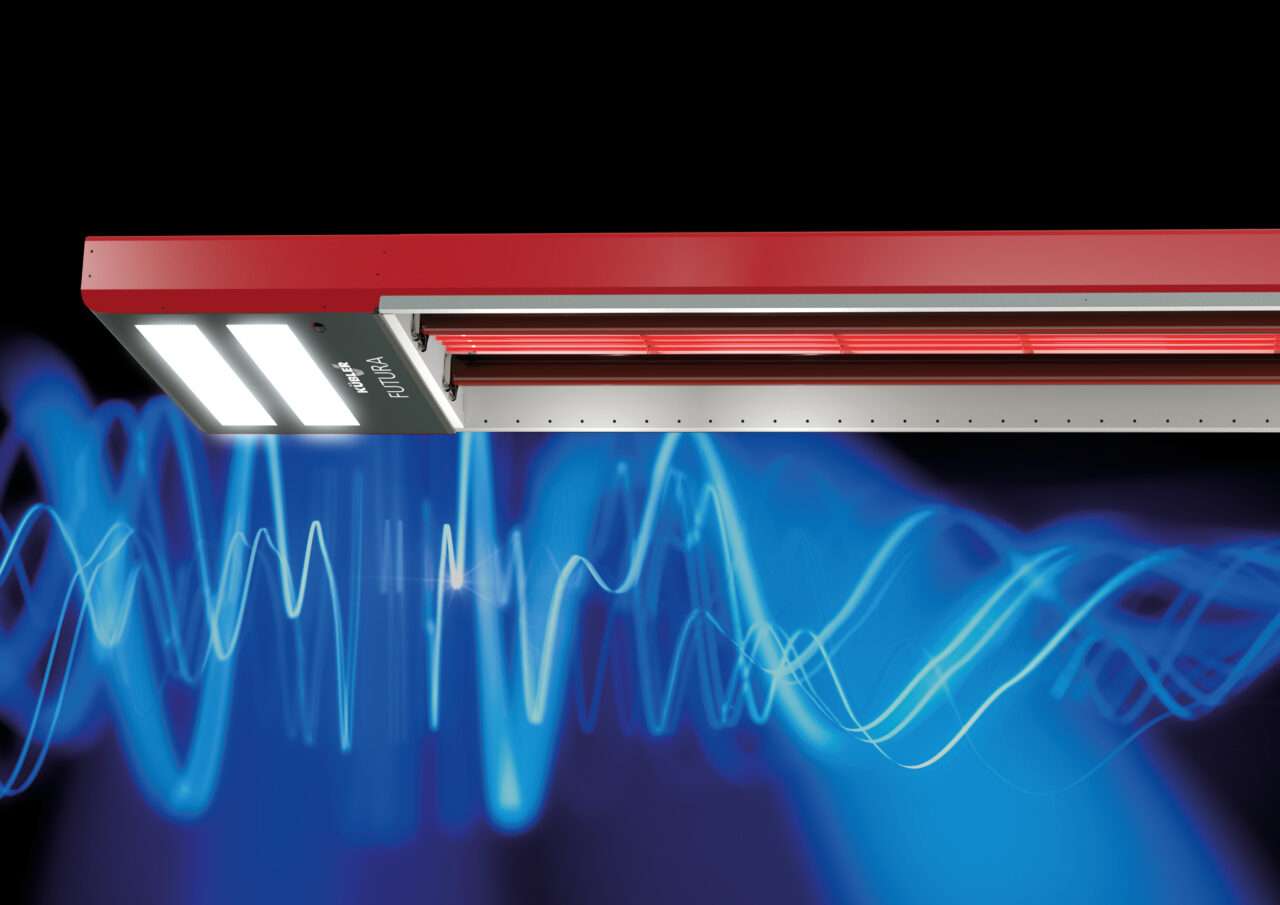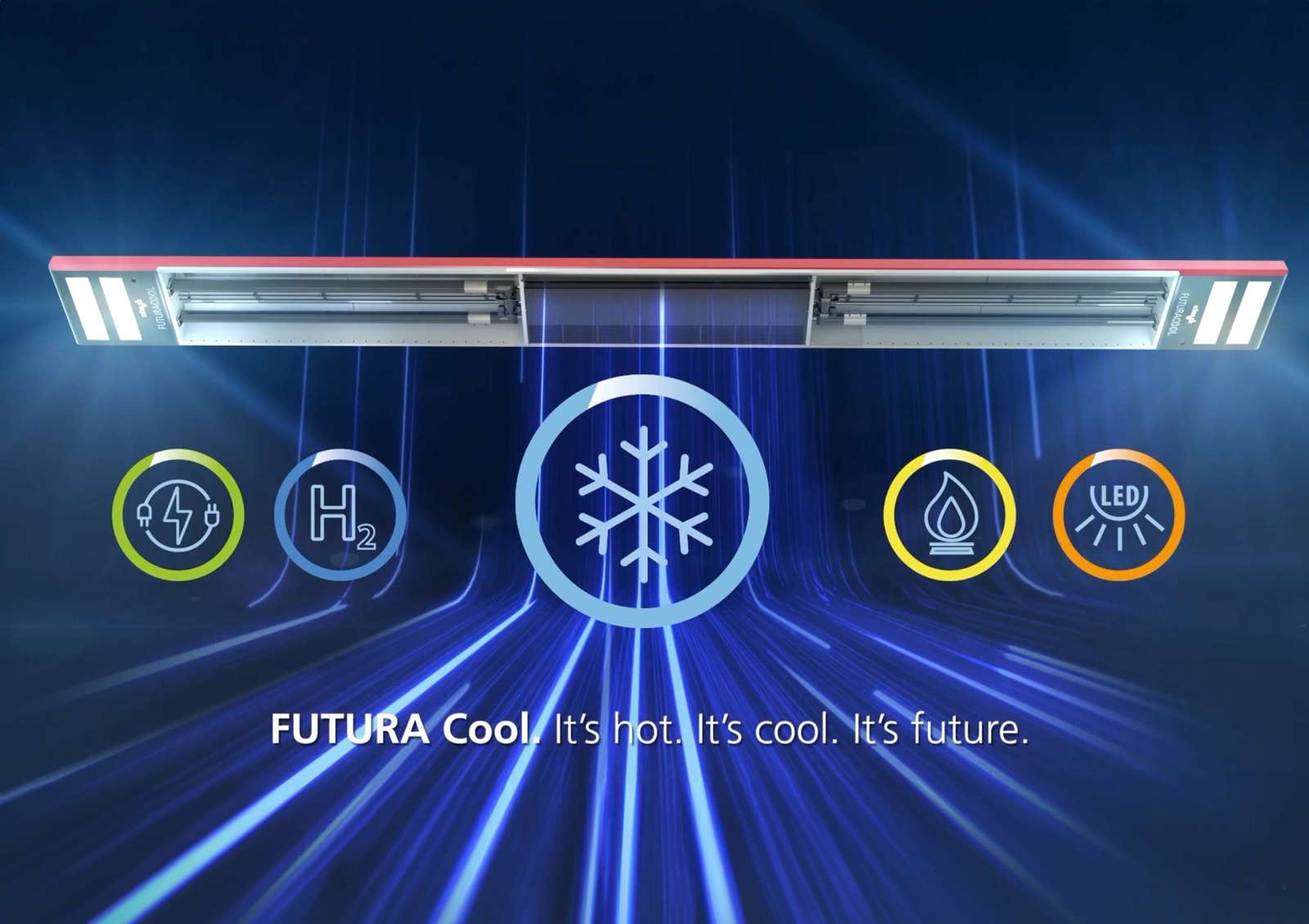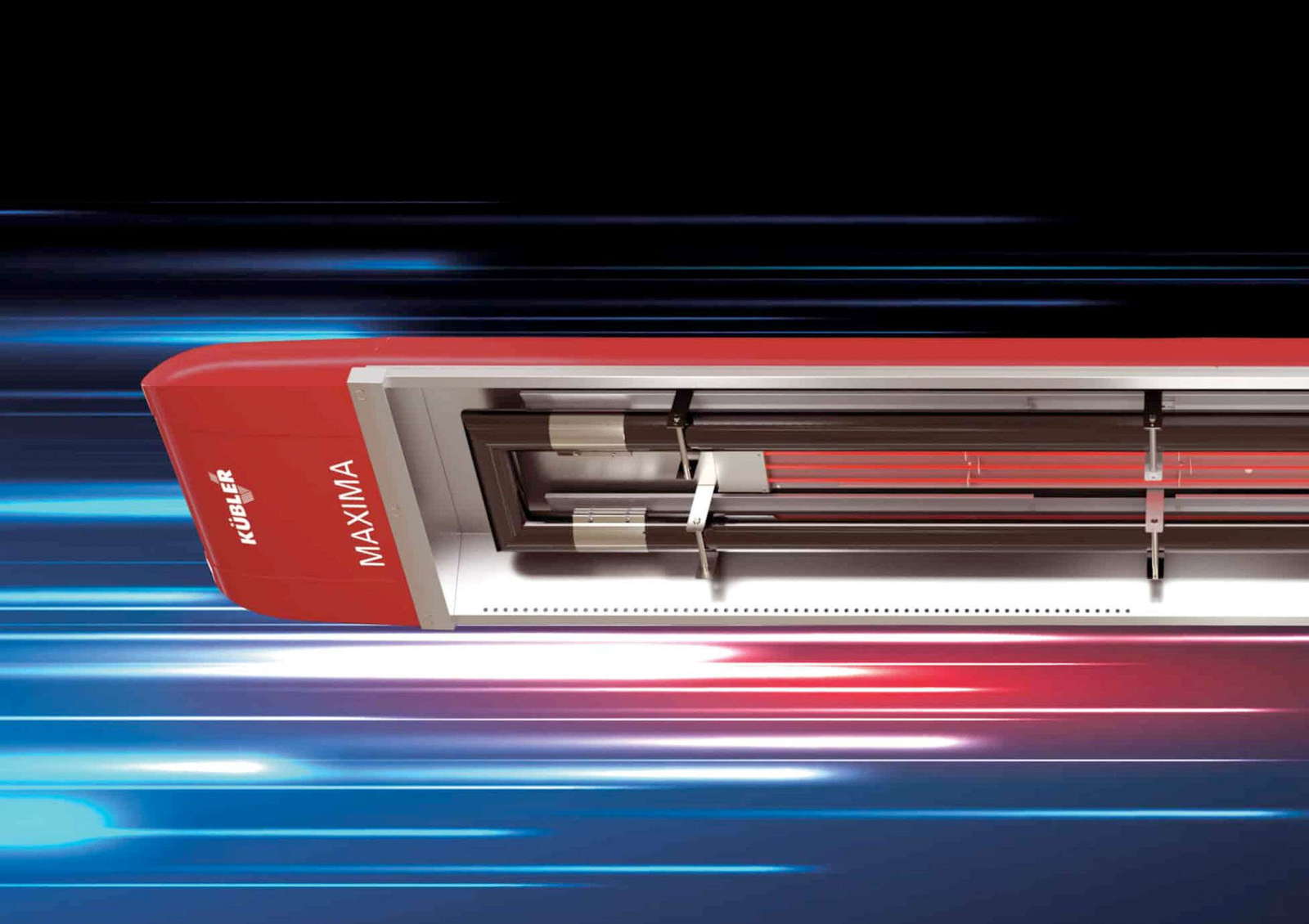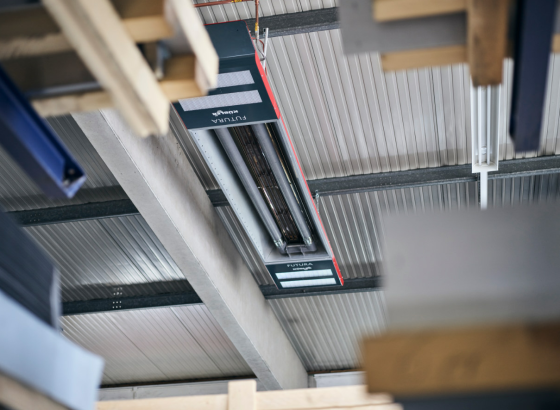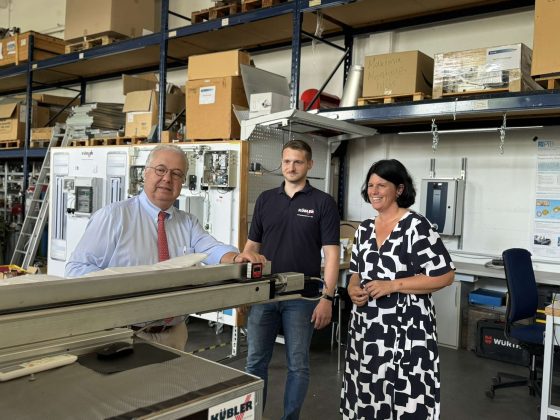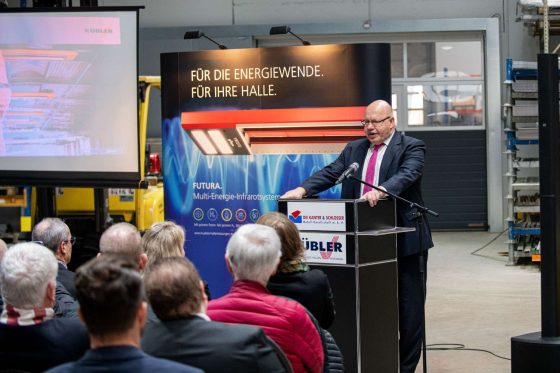Pioneering hall heating system nominated for the German Innovation Award 2023

Flexible and economical CO2-freedom
The multi-energy infrared heating system is a world first that builds a bridge to a carbon-free future. It is not for nothing that the new technology bears the name FUTURA. The energy-efficient IR heating system can use renewable energies such as electricity or hydrogen. At the same time, biogas, natural gas or liquid gas can also be used, switching variably between the energy sources. This works both in mono mode and in a mix. Depending on which energy is currently available or particularly cost-effective. "We thus ensure security of supply and stabilize the grids," says Thomas Kübler, founder and Managing Partner at KÜBLER. "But above all, our solution is economical."
Future-oriented hall heating with added value
This world first offers plenty of added value. After all, the KÜBLER R&D team did not just think about zero CO2-The focus is also on the real requirements of industry, commerce and local authorities. And these include
- Openness to green energy sources and
- Future security too
- secure availability,
- affordable and economical heat supply,
- high ROI,
- flexible functionalities and
- Transparent energy management
FUTURA also fulfills another goal of KÜBLER's research and development work: the innovation combines the functions of IR hall heating and LED hall lighting in one smart device. Among other things, this saves the usual double cabling effort and a lot of space under the hall roof in new hall construction. This is another added value that pays off for users.
The prize that makes innovation visible
The German Innovation Award recognizes products, technologies and services that break new, innovative ground and offer solutions that stand out due to their added value for users and the environment. The award is traditionally presented by the German Design Council, the world's leading competence center for communication and knowledge transfer in the field of design, brand and innovation - in two main categories: "Excellence in Business to Consumer" and "Excellence in Business to Business". In addition, projects that have used agile innovation methods on their way to innovation are honored in the overarching category "Design Thinking".
We look forward to your publication. You can download the press release + pictures under the following link: https://www.kuebler-hallenheizungen.de/wp-content/uploads/2023/03/Medien_Info_German_Innovation_Award.zip
-
KÜBLER presents world firsts for the sustainable and economical heating of industrial, commercial and municipal buildings at ISH 2023.
-
"I came to understand the technology," says Carina Konrad as Thomas Kübler begins his presentation and apologizes for the perhaps somewhat dry subject matter. There was a good reason why the deputy state chairwoman of the FDP in Rhineland-Palatinate and deputy chairwoman of the FDP parliamentary group made the trip to Ludwigshafen: "KÜBLER shows how [...]
-
Stadtwerke Frankenthal relies on high-efficiency technology and a healthy indoor climate.
-
With the FUTURA, KÜBLER from Ludwigshafen has developed a world first for heating industrial halls. It is an infrared heating system that can process green and fossil fuels highly efficiently - thus building a bridge to the carbon-free era. The company Die Kanter & Schlosser in Trier is the first to use this [...]
